
IN December 2001, the US and its allies launched their “war on terror” in retaliation for the September 11 attacks on New York City’s World Trade Centre buildings and the Pentagon. It was well known by then that the perpetrators of the 9/11 attacks—as the events had come to be known—were mostly young, well-educated men with engineering degrees. They were from Saudi Arabia and other places in the Middle East, in thrall of Al Qaeda, a transnational Islamist Jihadi organisation led by Osama bin Laden.
To avenge the “attack on America” by a new kind of enemy—one who defied nationalist affiliations in favour of a purportedly global religious ideology—the US and its NATO allies sent in hundreds and thousands of troops into Afghanistan, a country that seemingly had played no role in the 9/11 attacks and that had already been ravaged by the proxy wars of the Cold War era and beyond. Soon after that, troops from the US, the UK and their allies invaded Iraq, a country led by the erstwhile socialist and secular-minded dictator Saddam Hussain, thereby laying bare the politics of oil and the interests of the weapons industry propelling the inauguration of new war fronts.
This story is from the {{IssueName}} edition of {{MagazineName}}.
Start your 7-day Magzter GOLD free trial to access thousands of curated premium stories, and 9,000+ magazines and newspapers.
Already a subscriber ? Sign In
This story is from the {{IssueName}} edition of {{MagazineName}}.
Start your 7-day Magzter GOLD free trial to access thousands of curated premium stories, and 9,000+ magazines and newspapers.
Already a subscriber? Sign In
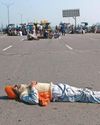
Between Life, Death and Protest
The strain of sustaining a long protest is evident among farmers at Khanauri, but the sense of community remains strong
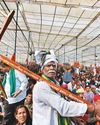
Protest 2.0
Farmers still have hopes from their leaders, but time is running out. The enemies, in the meanwhile, are sharpening their weapons

Trajectory of Nowhere
In the context of space and time, who are we humans and do we even matter?
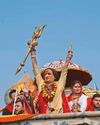
All of God's Men
THE ongoing Maha Kumbh at Prayagraj is a spectacle, a photo op, and an emotion and manifestation of the mixing of spirituality and faith.
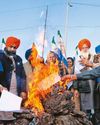
Embers Rekindled
While the recent death by suicide of a farmer has rendered the mood sombre at Shambhu border, the protests have picked momentum at the call of the unions

Time for Course Correction
What the protest by Punjab's landed peasantry tells us about the state's economy and society

The Untouchable
The ideological chasm between Ambedkar's vision and the Hindutva worldview remains irreconcilable
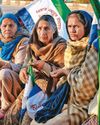
Frontliners
A day in the life of women protesting at Shambhu border
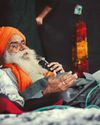
The Farmer-Composing Antagonist
Farmer leader Jagjit Singh Dallewal has been on a fast-unto-death at Khanauri border to pressurise the government to fulfil its promises to the farming community
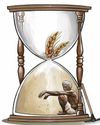
Till Death Do Us Part
Jagjit Singh Dallewal has reinforced how a fast unto death can serve as a warning and an appeal to the public and the government